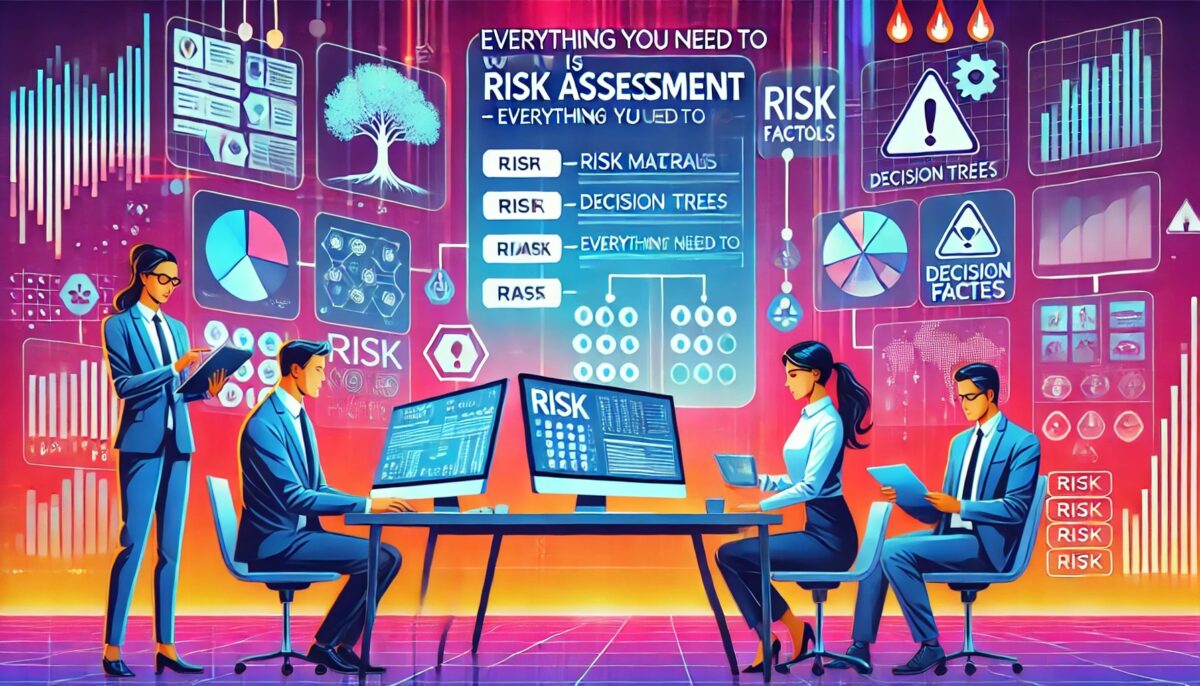Introduction
Risk assessment is a crucial process that organizations undertake to identify, evaluate, and prioritize risks that could potentially affect their operations, assets, or stakeholders. In the context of India, where diverse industries coexist amidst unique socio-economic challenges, effective risk assessment plays a pivotal role in safeguarding businesses and promoting sustainable growth. Lets delve into the what is risk assessment in Indian Context.
Understanding Risk Assessment
Risk assessment is the systematic examination of potential hazards, vulnerabilities, and uncertainties that could impact an organization’s ability to achieve its objectives. It involves:
Identification of Risks:
Recognizing potential threats and vulnerabilities that could lead to adverse outcomes.
Risk Analysis:
Assessing the likelihood and impact of identified risks to prioritize them based on severity.
Risk Evaluation:
Determining the significance of risks and deciding whether existing controls are adequate or further actions are required.
Importance of Risk Assessment in India
In the dynamic Indian business landscape, characterized by rapid industrialization, regulatory complexities, and diverse cultural nuances, the significance of risk assessment cannot be overstated. Key reasons include:
Regulatory Compliance:
With stringent regulatory frameworks across sectors like banking, healthcare, and environment, organizations must conduct risk assessments to ensure compliance and avoid penalties.
Business Continuity:
Assessing risks allows organizations to anticipate and mitigate potential disruptions, thereby ensuring continuity of operations and minimizing financial losses.
Health and Safety:
In sectors such as manufacturing, construction, and healthcare, risk assessment is critical for ensuring worker safety and reducing occupational hazards.
Financial Stability:
By identifying financial risks such as market volatility, credit risks, and liquidity issues, organizations can proactively manage their financial health and stability.
Types of Risk Assessment
Risk assessments can be categorized into several types, each serving specific purposes:
Hazard Identification:
Focuses on identifying potential hazards in the workplace or environment that could cause harm to people, property, or the environment.
Operational Risk Assessment:
Evaluates risks associated with day-to-day operational activities, including supply chain disruptions, technological failures, and human errors.
Financial Risk Assessment:
Analyzes financial risks such as credit risk, market risk, liquidity risk, and operational risk that could impact financial performance.
Security Risk Assessment:
Assesses risks related to information security, cybersecurity threats, and physical security breaches.
Steps Involved in Risk Assessment
The process of conducting a risk assessment typically involves the following steps:
Establishing Context:
Defining the scope, objectives, and criteria for the risk assessment process.
Risk Identification:
Identifying potential risks and their sources, including internal and external factors.
Risk Analysis:
Assessing the likelihood and consequences of identified risks using qualitative or quantitative methods.
Risk Evaluation:
Prioritizing risks based on their severity and determining the need for risk treatment or mitigation.
Risk Treatment:
Developing and implementing risk mitigation strategies, controls, or contingency plans to reduce or eliminate identified risks.
Monitoring and Review:
Regularly monitoring the effectiveness of risk controls and reviewing the risk assessment process to adapt to changing circumstances.
Applications of Risk Assessment in India
Risk assessment finds application across various sectors in India, including:
Healthcare:
Assessing clinical risks, patient safety risks, and regulatory compliance risks in healthcare settings.
Construction:
Identifying and mitigating risks associated with construction projects, including safety hazards and regulatory non-compliance.
Finance:
Conducting financial risk assessments to manage credit risks, market risks, and operational risks in banking and financial institutions.
Environment:
Evaluating environmental risks and impacts associated with industrial activities, waste management, and pollution control measures.
Challenges and Opportunities
Despite its importance, conducting effective risk assessments in India faces several challenges:
Data Availability:
Limited availability of reliable data and information for assessing risks, especially in emerging sectors and rural areas.
Expertise:
Shortage of skilled professionals with expertise in risk assessment methodologies and tools.
Cultural Factors:
Cultural and socio-economic factors influencing risk perception and management practices across different regions and industries.
Regulatory Complexity:
Navigating complex regulatory landscapes and ensuring compliance with diverse regulatory requirements.
Future Outlook
Looking ahead, the future of risk assessment in India is poised for growth and evolution. Advances in technology, including AI, data analytics, and predictive modeling, are expected to enhance the accuracy and efficiency of risk assessments. Moreover, increased awareness and proactive risk management strategies will enable organizations to anticipate and mitigate emerging risks more effectively.
Conclusion
In conclusion, risk assessment is not just a regulatory requirement but a strategic imperative for organizations operating in India’s dynamic business environment. By embracing systematic risk assessment practices, businesses can enhance resilience, protect stakeholders’ interests, and achieve sustainable growth amidst evolving challenges. By understanding the fundamentals of risk assessment and its applications in various sectors, organizations can proactively manage risks, capitalize on opportunities, and navigate complexities in India’s diverse and vibrant marketplace.








